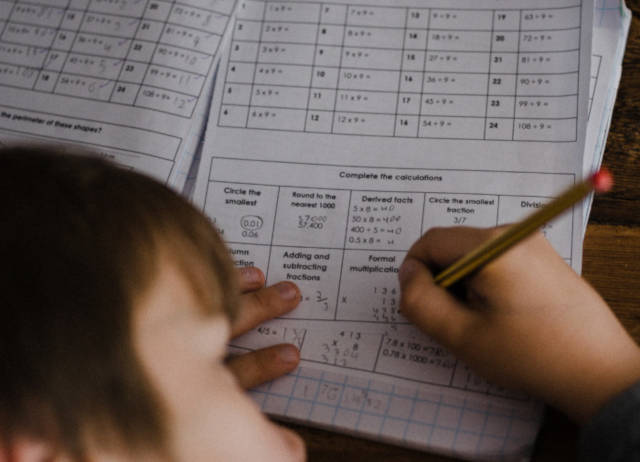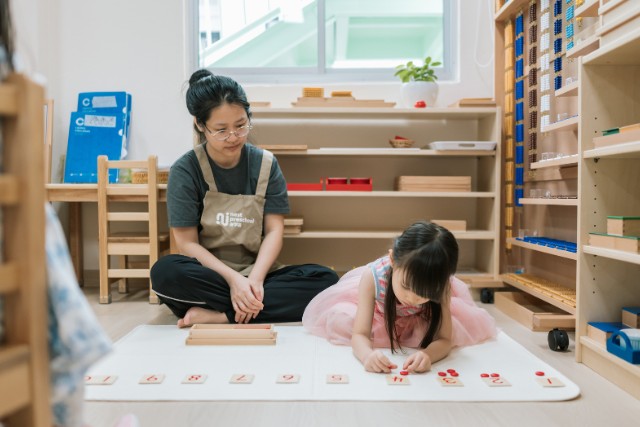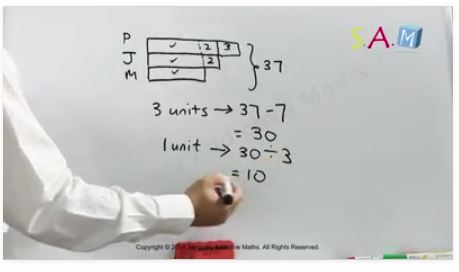It is not uncommon to see parents vehemently flipping through assessment books at the bookstores and leaving with a huge pile of these assessment books on various subjects.
Buying and making their children practise in assessment books is actually something rather unique to Singapore. Assessment books are unlikely to be found in bookstores abroad.
However, ‘pumping’ assessment book after assessment book may not be the magic pill to improving a child’s academic performance.

The Learning Process
As a matter of course, new content will be taught by the teacher in school. After that, homework and revision are given to allow the child the opportunity to apply and deepen their understanding of the concept.
In playing a supporting role, parents can help clarify and provide extra guidance on what has been taught in the classroom, in alignment with the teachings in school. Parents are not expected to teach new content at home.
If something new is introduced to the child, it is instead, considered enrichment rather than revision. Enrichment is more appropriate after a child has mastered the fundamentals sufficiently.
However, making a child do more and more and more practices or harder and harder questions as revision may not necessarily lead to improvement. To paraphrase the common saying, a child should instead revise smart, and not revise hard!
Important Considerations For Parents To Know
A child must first be fairly competent with the basic concepts before he or she is tasked to attempt more challenging questions. Just like in sports, lifting weights beyond a person’s capabilities will lead to injury.
When children attempt questions in assessment books, most of the time, they are merely exposed to a width of questions.
New question types that are unfamiliar to a child will require competent guidance. Without any scaffolding support, these questions remain unfamiliar.
Exposing a child too widely to many different types of questions can lead to the danger of over-diversification, as learning is spread out too thinly sideways. This has the adverse effect of diluting learning instead.
Therefore, doing revision by increasing the volume through doing more questions in assessment books may eventually cause children to feel more confused and lose interest in the subject.
They may then develop an aversion to the subject that will, at worse, fester long into their education journey. They may hate the subject more and more as they think it is so difficult and they are not seeing any progress themselves despite all the torturous work heaped upon them.
When Are Assessment Books Useful?

Nevertheless, there are situations where assessment books can be useful too, such as for weaker children who need extra grounding in basic concepts.
Doing questions on concept foundation in assessment books, to become more fluent with the multiplication tables, for example, will help a child to get the fundamentals right.
Likewise, doing topical multiple-choice grammar drills can help strengthen grammatical awareness.
The open ended questions such as those in Science, English comprehension or difficult mathematical word problems, should be left out during revision, to avoid creating more ambiguity when deciding if an answer is “right”. Leave those to the teacher to avoid giving conflicting feedback to the child.
So how can a parent determine if the child already has a competent grasp of the content foundation or needs additional materials to help firm up the understanding of basic concepts?

One suggestion is to do a simple diagnostic by attempting questions from the previous year or past worksheets in the same year. Redo a few old questions.
If a child is still unable to answer them correctly, then repair is needed for past learning, and harder materials should not be introduced.
Alternatives To Assessment Books
For a start, instead of doing more fresh questions from assessment books, a child can revisit previous materials like worksheets already done in school a few weeks or months before. This will ensure firstly, alignment of what is taught in school.
Also, revisiting old materials provides a benchmark; if a child gets the answer wrong the first time but is able to get the same question correct after redoing it, this is concrete and measurable proof, for both parents and child, of concept understanding.

Likewise, if a child is still unable to get the question right the second time or has gotten the right answer previously but answers wrongly now, these can be indications that further remedy and revision are needed in these specific areas. Revision is thus more focused and less arbitrary.
Past worksheets are a better diagnosis of a child’s learning than fresh questions. For revision in English and Mother tongue languages, identify words spelt wrongly and learn the correct spelling.
Get your child to spot and explain his or her own errors in Mathematics or Science worksheets.

If he or she is able to do so, it will reinforce understanding and allow your child to see a clear improvement in his or her own learning. This will boost morale too. Revision is then more meaningful and has clearer directions.
Just like in administering medicine, while aiming to alleviate symptoms, self-medicating or overdosing can also bring about more harm than good. Input is best sought from teachers in school before prescribing remediation at home.
Avoid making your child do more and more and more practices in assessment books blindly, without taking into consideration factors like how well the child has understood the concepts.
It’s better to ensure your child has a deeper understanding and in turn, a firmer grasp of what.
By Tan Khee Shian.
* * * * *
Like what you see here? Get parenting tips and stories straight to your inbox! Join our mailing list here.
Want to be heard 👂 and seen 👀 by over 100,000 parents in Singapore? We can help! Leave your contact here and we’ll be in touch.


























































